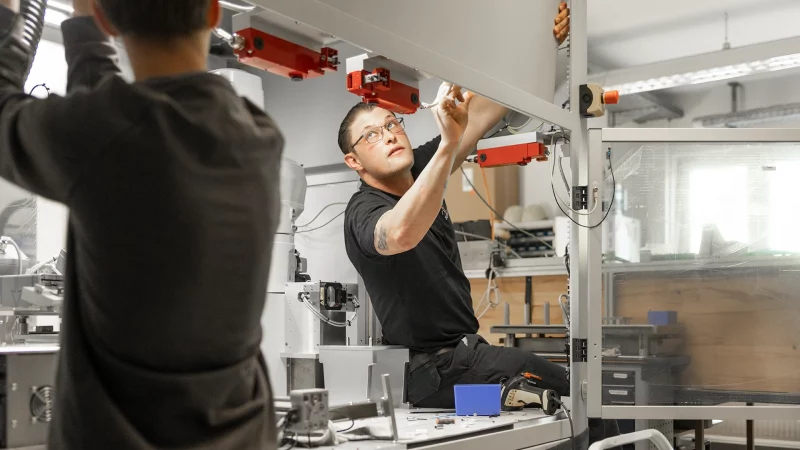Titanium solder masks play an essential role in mini wave soldering when it comes to precisely controlling the soldering process and protecting sensitive assembly areas. In contrast to conventional masks made of stainless steel or plastic, titanium offers a combination of high temperature stability, low thermal conductivity and excellent mechanical strength. These properties are crucial for repeated thermal cycles.
During the mini wave soldering the solder mask defines the exact contact area between the solder and the PCB. It ensures that the liquid solder only adheres to the intended soldering points, while neighbouring components, connectors or housing areas are reliably shielded. With know-how and experience, even complex geometries with minimal wall thicknesses can be realised, which enables very precise solder current routing with maximum accessibility.
Heat-treated titanium masks have a particularly homogeneous, solder-repellent surface. This prevents uncontrolled solder adhesion, reduces heat sinks and contributes to an even temperature distribution. The material behaviour of titanium, in particular its low thermal expansion and high dimensional stability, ensures that the mask geometry remains unchanged even after many soldering cycles. This ensures reproducible results and consistently high soldering quality with maximum cost-effectiveness.
Another technical advantage is the thermal decoupling between the soldering area and sensitive assembly sections. Titanium solder masks act as a thermal barrier, effectively protecting components with low temperature resistance, such as plastic housings, sensors or connectors. At the same time, the defined solder current routing in the mask geometry allows targeted wetting and optimised solder penetration.
In industrial applications, titanium solder masks therefore make a significant contribution to process stability and component safety. They enable reproducible, reliable and economical production, especially for high-density and thermally sensitive assemblies such as those used in the aerospace, medical and automotive industries.




